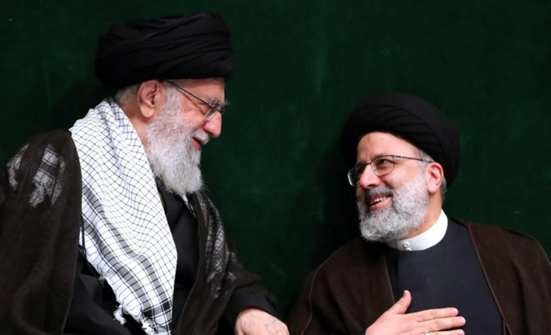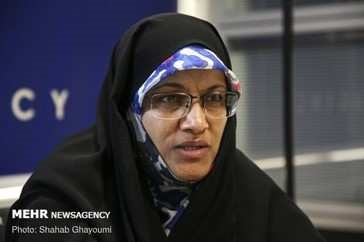Wprowadzenie
Podczas gdy Zachód żądana natychmiastowego powrotu Iranu do rozmów nuklearnych w Wiedniu w celu doprowadzenia do ponownego przestrzegania przez Iran restrykcji nałożonych na wzbogacanie uranu według umowy nuklearnej JCPOA, coraz powszechniej uważa się, że Iran za prezydenta Ebrahima Raisiego podejmie negocjacje, ale także usztywni swoje stanowisko. To stanowisko obejmuje obecnie żądanie zrealizowania decyzji irańskiego Madżlisu z grudnia 2020 r. o zniesieniu sankcji USA.
Według raportu Międzynarodowej Agencji Energii Atomowej z sierpnia 2021 r. Iran kontynuuje wzbogacanie uranu do 60% używając centryfug nowej generacji (IR-4 i IR-6). Stanowi to podwójne złamanie JCPOA, która ogranicza irańskie wzbogacanie do 3,67% i do używania wcześniejszej generacji centryfug. W raporcie MAEA pisze, że wzbogacanie do 60% przybliża Iran do wzbogacania do 90%, jakie jest potrzebne do broni jądrowej i że Iran uczynił postępy w produkowaniu metalicznego uranu używanego do produkcji broni jądrowej; jak dotąd wyprodukowali go 200 gramów.
Jeśli istotnie irański reżim powróci do stołu negocjacyjnego, prawdopodobnie zażąda zniesienia wszystkich sankcji USA na Iran, jak wymaga najwyższy przywódca, Ali Chamenei – nie tylko tych, które narzuciła administracja Trumpa, ale także narzuconych przez Kongres za wsparcie Iranu dla terroryzmu i łamania praw człowieka – praktycznie unieważniając JCPOA. Tak więc irański reżim przedstawia Zachodowi nową rzeczywistość, w której zachowane będą ramy JCPOA, ale bez stosowania jakichkolwiek z umówionych restrykcji.

Zachód może mieć wrażenie, że prezydent Raisi, weteran ideologicznego obozu Iranu i jego ekstremistyczno-konserwatywny rząd sprzeciwia się JCPOA i chce jego anulowania. Obecnie jednak jest całkowicie jasne, że cały irański reżim, szczególnie obóz ideologiczny, chce utrzymać porozumienie, a także chce podniesienia międzynarodowego status Iranu do państwa nuklearnego. Należy zauważyć, że to porozumienie jest nieodwołalne, ponieważ jest zakotwiczone w rezolucji Rady Bezpieczeństwa ONZ.[1]
Należy podkreślić, że irańskie kroki w negocjacjach nuklearnych już dały im znaczące osiągnięcia od USA i Zachodu:
- Naruszają JCPOA jako nacisk na USA, by znieść wszystkie sankcje i tym samym złagodzić ekonomiczny kryzys Iranu i pozwolić na zachodnie inwestycje w Iranie, które nie mogą być realizowane, jak długo obowiązują sankcje Kongresu USA za terroryzm i łamanie praw człowieka.
- Równocześnie, przyspieszają swój program nuklearny bez technicznych restrykcji lub nadzoru MAEA i łamią bezkarnie wszystkie aspekty porozumienia.
Irańczycy zrozumieli, że administracja Bidena widzi dyplomację jako swój główny lub jedyny środek wpływu na kwestię nuklearną Iranu. Rak więc islamski reżim w Iranie gromadzi znaczące osiągnięcia na długiej drodze do końcowego celu osiągniecia międzynarodowego uznania Iranu za państwo nuklearne. Jeśli nie uda mu się otrzymanie zniesienia sankcji, przynajmniej będzie prowadził nieograniczoną i nienadzorowaną działalność nuklearną.
[Dalsza część raportu z analizą strategii prezydenta Raisiego w sprawie nuklearnej, decyzji Madżlisu i wideo z przeglądem wypowiedzi Chameneiego o nuklearnych negocjacjach nie jest spolszczona]
This report examines President Raisi’s strategy on the nuclear issue, the Majlis’s „Strategic Action Plan To Lift Sanctions and Protect Iranian Nation’s Interests” law[2] on which his strategy is based, and a video posted on Supreme Leader Ali Khamenei’s website on August 1, 2021 reviewing his statements and criticisms regarding Iran-U.S. nuclear negotiations from April 2012 to the present.
Nour News: The „Strategic Action Plan To Lift Sanctions and Protect Iranian Nation’s Interests” Will Be The Main Element In Setting New Agenda For Nuclear Talks
An August 10, 2021 op-ed on the Nour News website, which is affiliated with Iran’s Islamic Revolutionary Guards Corps (IRGC), explained the policy that the Raisi government should adopt in the Vienna talks. The West, it said, is to blame for the failure of the talks because it refused to meet its JCPOA obligations and also refused to accept Iran’s position throughout the six previous rounds of talks. It added that because of this failure there must be „an overall [re]examination [in order to] set a new agenda for the resumption of the talks.”
As far as Iran is concerned, it stated, the Strategic Action Plan To Lift Sanctions and Protect Iranian Nation’s Interests, passed by the Iranian Majlis in December 2020, will be „the main element in setting this new agenda for the Vienna talks.”
It concluded that Iran’s Supreme National Security Council will continue to formulate Iran’s nuclear policy: „Although the changeover in government has a limited impact on how the goals of Iran’s foreign policy will be implemented, and taking into account that the Supreme National Security Council, as a governing body, sets the country’s foreign policy strategies, monitoring the nuclear issue and setting new strategies in the Vienna talks will no doubt be part of the clear policy that Iran announced and that will be overseen by the council.”[3]
The Basis For The Talks Is The Majlis’s „Strategic Action Plan To Lift Sanctions”
In recent months, Iran has been implementing the December 2020 Strategic Action Plan to Lift Sanctions, the law passed by the Majlis under which the Iranian regime is working to get the U.S. sanctions on Iran lifted. Also under this law, uranium enrichment, currently 60%, is being increased as quickly as possible, using advanced centrifuge systems. All this is in blatant violation of the JCPOA.
Additionally, under the Strategic Action Plan to Lift Sanctions, uranium metal – whose main use, according to European officials, is in nuclear weapons – is being produced by Iran. Iran is further pressuring the West using another section of this law – rejecting IAEA inspection of Iranian nuclear facilities. Iran is thus presenting the West with the fait accompli of its ongoing nuclear activity.
The Strategic Action Plan to Lift Sanctions states:
- „In order to comply with the nine conditions set out by Supreme Leader Ali Khamenei regarding the nuclear agreement,[4] Iran’s Atomic Energy Organization is required to do the following:
- „Produce uranium enriched to 20% for peaceful purposes and stockpile at least 120 kg of it annually on Iranian soil…
- „In order to meet the capacity of 190,000 centrifuge SWU [Separative Work Units, referring to first-generation centrifuges],[5]the organization is required to increase its uranium enrichment and production capacity to the enrichment level required by each of the peaceful purposes, [so as to increase production] by at least 500 kg per month, and to store enriched material inside the country.
- „The Atomic Energy Organization must commence installation, gas injection, enrichmentl and storage of material enriched to the required level using at least 1,000 advanced second-generation IR-2M centrifuges within no more than three months from the ratification of this law [in December 2020]. Within this period, the organization must begin enrichment, and research and development [using] at least one [cascade of] 164 sixth-generation centrifuges (IR-6), increasing their number to 1,000 within one year…
- „The Atomic Energy Organization is required to begin operating the uranium metal manufacturing plant in Esfahan within five months…
- „The Iranian government is obligated to suspend the [IAEA] inspection [of its nuclear facilities], including the suspension of its voluntary implementation of the Additional Protocol, within two months of the law coming into force, if: a) the 4+1 countries that signed the [nuclear] agreement (Germany, France, Britain, China and Russia) do not fulfill their obligations; b) banking relations [with Iran] are not reinstated; c) the [obstacles] preventing the export and sale of [Iranian] oil are not fully removed and [Iranian] oil [revenues] are not returned [to Iran]…[6]
Majlis National Security and Foreign Policy Committee Member Zohreh Elahian: „Raisi Agrees To Return To The Agreement… Negotiations Will Follow A New Model”
On August 19, 2021, Majlis National Security and Foreign Policy Committee member Zohreh Elahian discussed President Raisi’s position on the nuclear talks. Raisi’s position is also held by Iranian Foreign Minister Hossein Amirabdollahian, and Amirabdollahian presented this position to the committee.
Ms. Eliahan said: „The future of the nuclear agreement is an issue that must be decided by senior regime officials. The president, of course, thinks that negotiations should not drag on, and Amirabdollahian’s view of negotiations is the same as the Leader’s [Khamenei’s] and the president’s – and this is a positive and constructive perception. Naturally, Amirabdollahian stressed that there is a need to find a new model for negotiating – that is, negotiations must not drag on and must yield results.
„Unfortunately, under the Rohani government negotiations continued with no results. We will certainly not see this under the new government. There will be a new model for negotiating.”[7]

Iranian Political Analyst Emad Abshenas: Raisi Will Negotiate With The Biden Administration, But Only To Get The Sanctions Lifted
Iranian political analyst Emad Abshenas, the editor-in-chief of Irdiplomacy.ir, said that unlike the Rouhani negotiating team, Raisi’s government will not seek to reach a fundamental resolution of all disagreements with the U.S., but only to have the sanctions lifted. He was speaking on Sky News Arabiya (UAE) in an interview that aired on July 24, 2021. He added that Iran’s first priority will be resolving disagreements with the neighboring countries and rapprochement with „the countries of the East” such as Russia and China, not with Europe and the U.S.
To view this clip on MEMRI TV, click hereor below:
Video On Khamenei’s Website Reviews His Misgivings Regarding The Nuclear Talks With The U.S. From 2012 To The Present
On August 1, 2021, Supreme Leader Khamenei posted a video compilation on his website reviewing his statements on various official occasions expressing misgivings regarding negotiations with the U.S., from April 2012 to his last meeting with President Rouhani’s government on July 28, 2021.
In the video segments, Khamenei says that the Americans cannot be trusted because they are liars who break their promises, and that the Iranians should not be deceived by the Americans’ smiles and should not trust them „because once they get what they want, they will make a mockery out of you.” He said that they sweet-talk you but what they really want „is to conspire, sabotage, and prevent progress.” In his July 28 statements, he said that President Rouhani’s term had proven that there is no relying on the U.S
To view this clip on MEMRI TV, click here or below:
* A. Savyon is Director of the MEMRI Iran Studies Project.
[1] On the Iranian nuclear program as a national enterprise and on the regime’s bid to upgrade Iran’s status and be recognized as a nuclear threshold state, see MEMRI Inquiry and Analysis No. 1556, Iran Uses 'Maximum Pressure’ On Biden Administration To Have Sanctions Lifted And Be Recognized As Nuclear Threshold State – And Based On This, To Attain Nuclear Balance Of Terror, published February 5, 2021.
[2] Iaea.org/sites/default/files/publications/documents/infcircs/2021/infcirc953.pdf, February 2, 2021.
[3] Nour News (Iran), August 10, 2021.
[4] See MEMRI Inquiry and Analysis No. 1196, Iranian Supreme Leader Khamenei’s Letter Of Guidelines To President Rohani On JCPOA Sets Nine Conditions Nullifying Original Agreement Announced July 14, 2015, October 22, 2015.
[5] SWU is the standard measure of the effort required to separate isotopes of uranium (U235 and U238) during an enrichment process in nuclear facilities. See also MEMRI Inquiry and Analysis No. 1196, Iranian Supreme Leader Khamenei’s Letter Of Guidelines To President Rohani On JCPOA Sets Nine Conditions Nullifying Original Agreement Announced July 14, 2015, October 22, 2015.
[6] Majlis.ir, August 12, 2021.
[7] Mehr (Iran), August 19, 2021.








